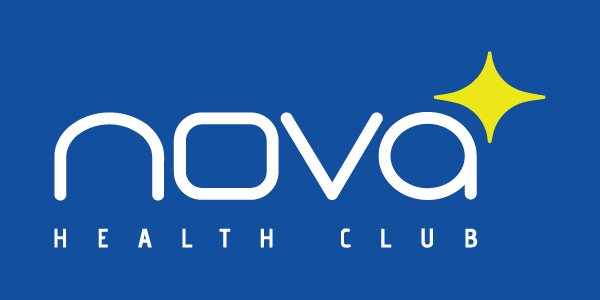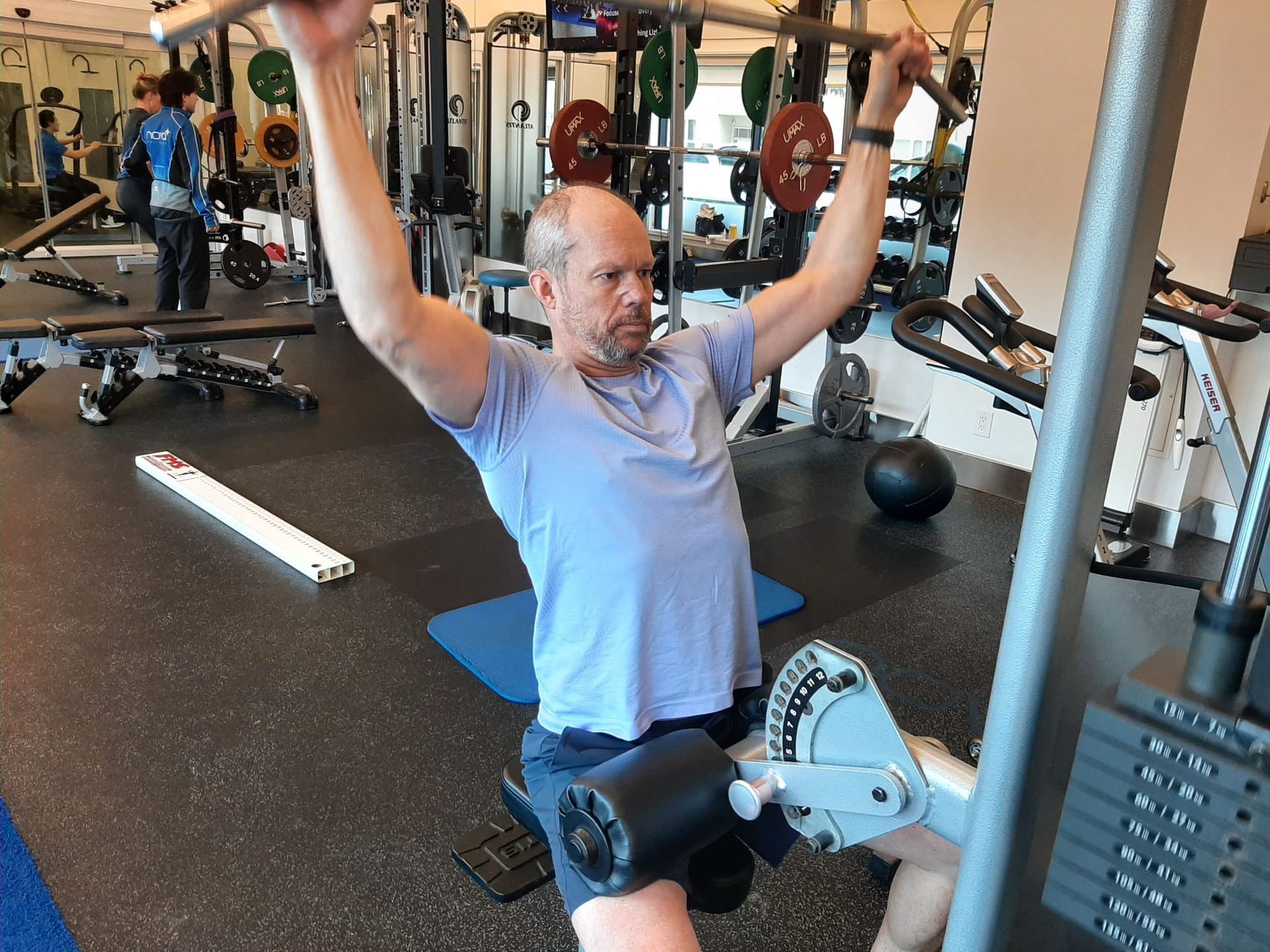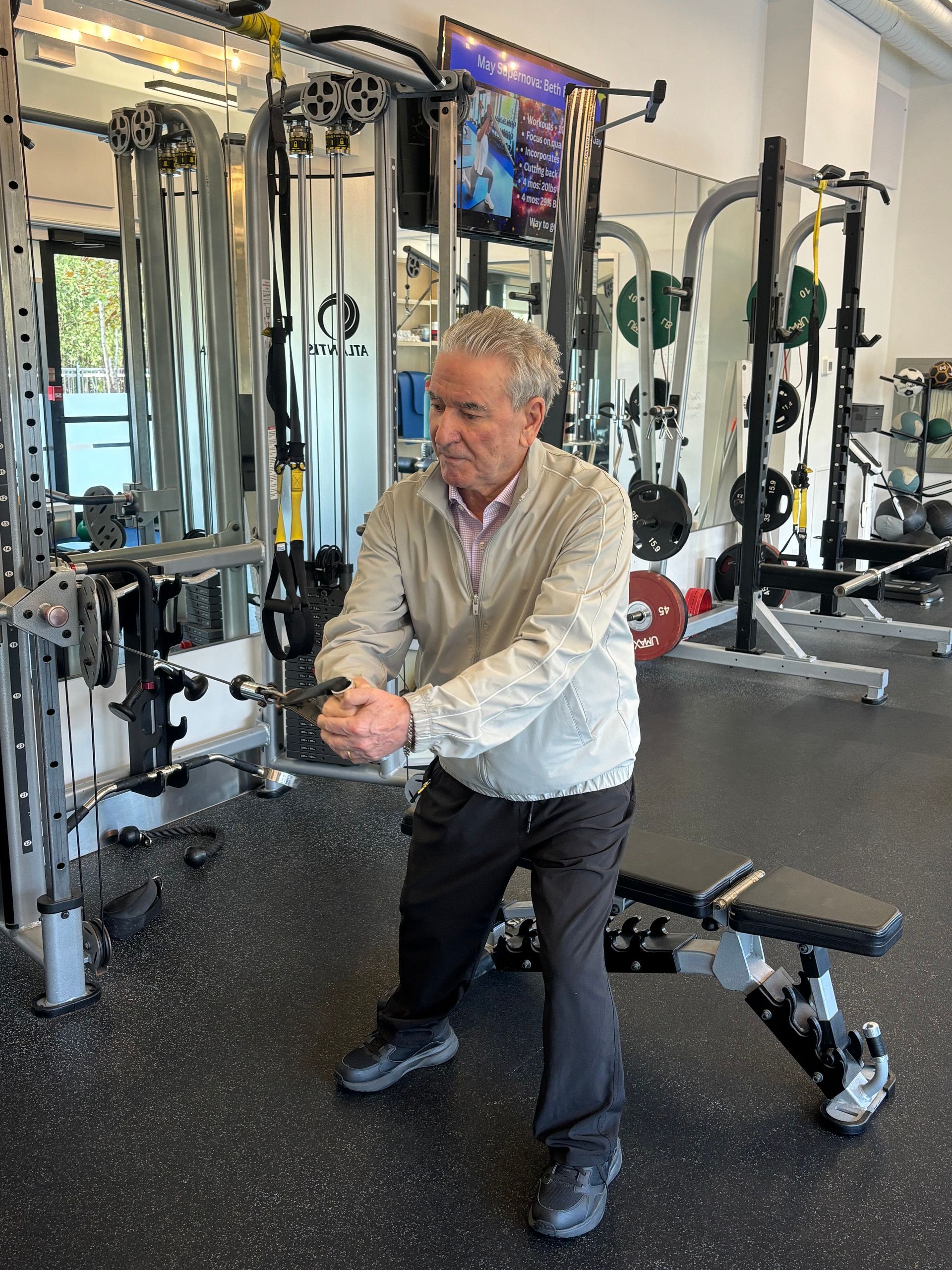Sleep Foundations
Understanding the Circadian Rhythm
- Your circadian rhythm, or your sleep/wake cycle, is a 24-hour internal clock that regulates sleepfulness and wakefulness. Your circadian rhythm is controlled by a part of your brain called the hypothalamus, which is very sensitive to light. When your hypothalamus senses light, it sends signals to the rest of your body telling it that it's time to wake up. On the other hand, when it gets dark, your hypothalamus signals your body that it's time to wind down.
- Another factor that affects circadian rhythm is temperature. Humans have evolved with temperatures dropping at night relative to day. Just like light, our body senses temperature and it has an effect on our sleep.
- Cortisol and melatonin are the main hormones involved in the circadian rhythm process. In a perfect world, cortisol rises in the morning and then drops at night. Melatonin does the opposite. It's lowest in the morning and then gradually increases as the day goes on. That means, in theory, you wake up in the morning feeling energized, ready to go from cortisol. Then at night you start to feel sleepy and head to bed from melatonin.
- Circadian rhythms have been critical throughout evolution, allowing animals (including humans) to prepare for upcoming changes to their environment. Today, research is charting the harms of disrupted circadian rhythm, such as sleep disorders, obesity, diabetes, depression, and bipolar disorder—not to mention difficulties concentrating and staying productive.
Physiological & Lifestyle Factors That Affect Sleep
- High Cortisol
- Cortisol is your ‘stress’ hormone. Cortisol is not bad but too much of it and at the wrong times is. Unfortunately we expose ourselves to more stress than what we evolved to be able to handle. When we have this chronic high level of stress, our cortisol levels become imbalanced which will disrupt sleep.
- Cortisol is designed to wake us up in the morning. Altered cortisol levels can lead to you waking earlier than usual. Waking up at 3, 4 or 5am and not being able to fall back asleep can be a sign of high cortisol.
- Lifestyle factors:
- Mental stress such as deadlines, workload, arguments.
- Emotional stress such as relationship problems, not doing what you love.
- Physical stress such as poor diet, lack of sleep, too much physical exertion or injuries.
- Blood Sugar Imbalances.
- Being insulin resistant means that your cells do not respond well to insulin, a hormone needed to regulate blood sugar.
- Insulin resistance and poor blood sugar balance can cause the kidneys to overwork, leading to more frequent urination at night which disrupts sleep.
- Lifestyle Factors
- Poor nutritional choices, typically processed high carbohydrate diets.
- Lack of or poor quality sleep.
- Poor Detoxification
- Inability to effectively detoxify will negatively affect sleep.
- The liver is responsible for detoxification and does most of its work at night. Therefore, if the liver is overworked or backed up from excessive toxic load, you will have trouble falling or staying asleep.
- Lifestyle Factors
- Consumption of water or food high in toxins ie: heavy metals, pesticides.
- Environmental toxins ie: car or industry related pollution.
- Direct exposure ie: careers with chemical exposure, cosmetics etc.
- Digestion and Food Timing
- Digestion is meant to slow down at night. Eating late leads to poor digestion by forcing it to work overtime. As a result you won’t sleep well.
- Lifestyle Factors
- Eating large/dense meals within 3hrs of bed time.
- Alcohol can disrupt sleep too. It may help you fall asleep easier but it generally will lead to poor sleep quality and cause you to wake early feeling unrested.
- Low Carb Diets
- Low carb diets and regular fasting, especially for too long will disrupt sleep. It results in a reduction of serotonin; a sleep and mood neurotransmitter.
- Low carb/calorie diets also affect the thyroid which regulates body temperature; a major part of maintaining healthy circadian rhythm.
- Intense Training and Exercise Timing
- Excess cardio, or workouts that are very long (more than an hour) put the body under excessive stress.
- Intense exercise later in the evening will suppress melatonin and elevate cortisol making it harder to fall asleep.
5 Reasons To Prioritize Sleep
Sleep is probably the best and most underrated thing you can do for your health, well being and longevity. In our modern world with so many forces against sleep (TV, cellphones, workload, social pressure/commitments, processed foods etc) it is no wonder that our sleep suffers the way it does and why it is so challenging for us to get a good night's sleep. Here are 5 reasons why getting good sleep is essential to living your best life.
1.Repair and Recovery
- Whether you are a professional athlete or office worker, if you want to perform well at your craft you must allow the brain and body to rest.
- Between 10pm and 1am growth hormone repairs your body while the nervous system repairs from 1am - 6am.
2. Focus & Cognition
- Good sleep can optimize problem-solving abilities and boost memory performance. Conversely, insufficient sleep has been demonstrated to hinder cognitive function and impair decision-making capabilities.
3. Energy
- Most of us feel a sense of pride when we accomplish important tasks during the day. Having enough energy is essential to completing these responsibilities and feeling good about yourself.
4. Fat Loss and Muscle Growth
- Insufficient sleep duration is linked to a heightened likelihood of developing obesity and experiencing weight gain. Sleep deprivation can also amplify appetite, leading to increased calorie consumption, particularly of sugary and fatty foods.
- Up to 80% of the growth hormone is secreted at night, between 11pm and 1am. This hormone is responsible for stimulating growth and repair of every tissue in the body (including muscles), along with mobilizing fat cells.
5. Emotions and Social Interactions
- Inadequate sleep loss reduces your ability to regulate emotions and interact socially. Being tired creates behaviors that may be out of character for you. Prioritizing sleep may be a key way to improve your relationships with others and help you become more social.
10 Essential Habits to Improve Sleep
People demonstrate sleep challenges in different ways. Trouble falling asleep, waking up in the middle of the night, snoozing a few times before waking up, waking up tired, etc. In some cases, people may not manifest specific symptoms. However, they realize how much better they sleep and feel when they start implementing better sleep related habits. So why do so many of us struggle with getting good sleep? There are many factors that play into having a good sleep, most of them lifestyle related and therefore within your control. Here are 10 lifestyle habits that you can change to improve your sleep.
- Morning Light
- Allow sunlight (natural light) to be sensed by your body each morning. Getting sunlight (prior to 10am) on your body (eyes and skin) when you get up in the morning wakes up your cells and shuts off melatonin production to reset your circadian clock for a new day.
- If getting sunlight is difficult at certain times (because of weather, schedule or where you live), invest in devices that emit infrared light of specific (and safe) frequencies that have been proven to increase antioxidants, reduce inflammation, improve recovery and sleep quality.
- Bed Time
- Make it a habit to turn off your light by 10:30 pm at the latest. This allows your body to be sleeping by 11pm thereby taking advantage of the time when we release the most amount of growth hormone (which is essential for fat loss and muscle repair/growth).
- Electronics Before Bed
- Set a time after which you do not use electronics including cell phones, TV, computers, etc. 1 hour before bed at minimum. If you absolutely must use them after the deadline, use blue-light blocking glasses and manage how bright the screens are..
- Electronics While Sleeping
- When you sleep, there should be no electronics beside you, especially near your head. All electronics emit frequencies that your brain perceives, disrupting sleep quality. Make sure Wifi is turned off and consider charging your devices in a room away from where you sleep.
- Dim Lighting
- The days of relying on a setting sun to regulate our sleep cycle are gone because we live in a time where it is hard to escape artificial light. We can however control the amount of light we are exposed to. As the sun goes down, turn off some lights to create a dim lit setting in your home. This will help with melatonin production allowing your body to be ready for sleep. Spending an evening with a fire is another way that dim lighting can help prepare your body for bed.
- Bat Cave
- For a healthy circadian rhythm, it is ideal to sleep in a room that is pitch black. Remove electorics, LED lights and install blinds or curtains to prevent light from outside. If you can not control the light, wear a sleep mask for your eyes. Along with that, reducing/eliminating noise in the room will dramatically improve sleep quality. If you cannot control noise, wear ear plugs.
- Temperature
- Temperature has just as much impact on your sleep, as light does. The ideal temperature of your room should be about 60-68 degrees Fahrenheit (18 degrees Celsius. Sleeping naked helps the body reduce its temperature, inducing deeper sleep too.
- Nutrition
- If you have blood sugar/insulin imbalances, it will be very important to fix this first. Generally this would require eating a whole foods diet that is free of processed carbohydrates.
- Finish eating your last meal, 3 hours before bed. If you need to eat closer to bedtime, choose something that is easier to digest such as a protein smoothie, banana or avocado.
- Supplements
- Basic supplements include high quality liquid fish oil and magnesium. These two alone will create improvements in sleep quality.
- Calming Activities
- Choose activities that help your nervous system turn on rest mode such as stretching, warm bath, drawing, reading or listening to relaxing music. Sitting by a fire is another great way to calm down and prepare the body and mind for bed.
Wake Times at Night and What They Mean
10pm - 1am: Reactive Hypoglycemia (sugar crash)
- Usually an indication of insulin resistance and not being able to balance blood sugar levels. Some form of nutritional intervention would be needed here. For others, this could be from not eating enough food or high quality carbohydrates during the day.
1am - 3am: Liver Toxicity / Overworked Liver
- The liver could be overworked / toxic for a number of reasons. Some of these may include exposure to chemicals, hormones, heavy metals, birth control, medications, painkillers, alcohol and smoking. Besides minimizing / eliminating these factors, improving nutrition and hydration will support the liver.
3am - 5am: Oxidative stress
- Having a high concentration of oxidants in your system is a result of consuming too many inflammatory, sugary, processed foods and not enough variety/quantity of fruits and vegetables.
3am - 7am: Disrupted Cortisol Curve
- Common for those who have a variety of stresses in their lives. The better you can manage the top stressors in your life, the faster you will sleep through this time slot. There are specific supplements that can help too if the basic sleep foundations do not work and you are unable to change the stressor.
If you would like more support to help you improve your sleep and energy contact us for information on our health coaching services.











